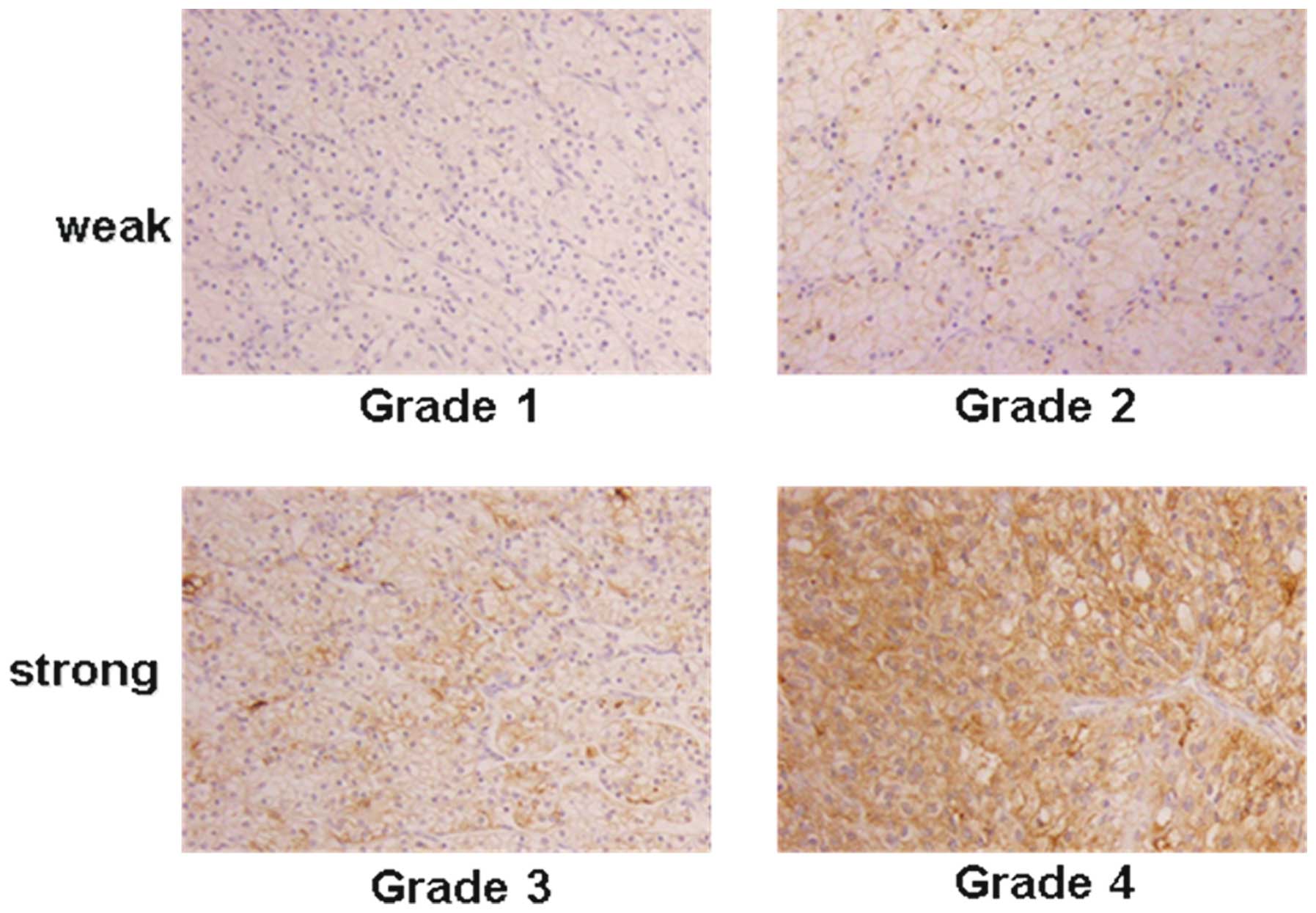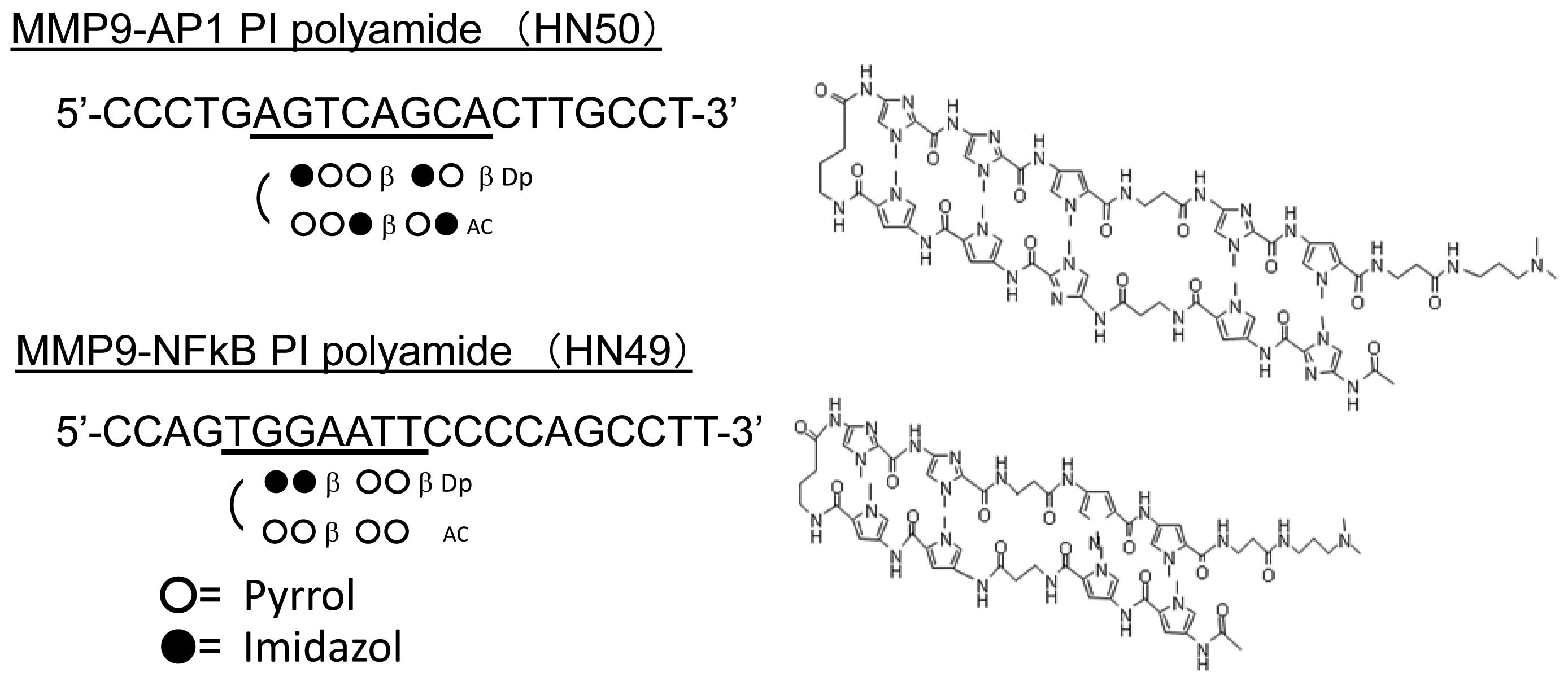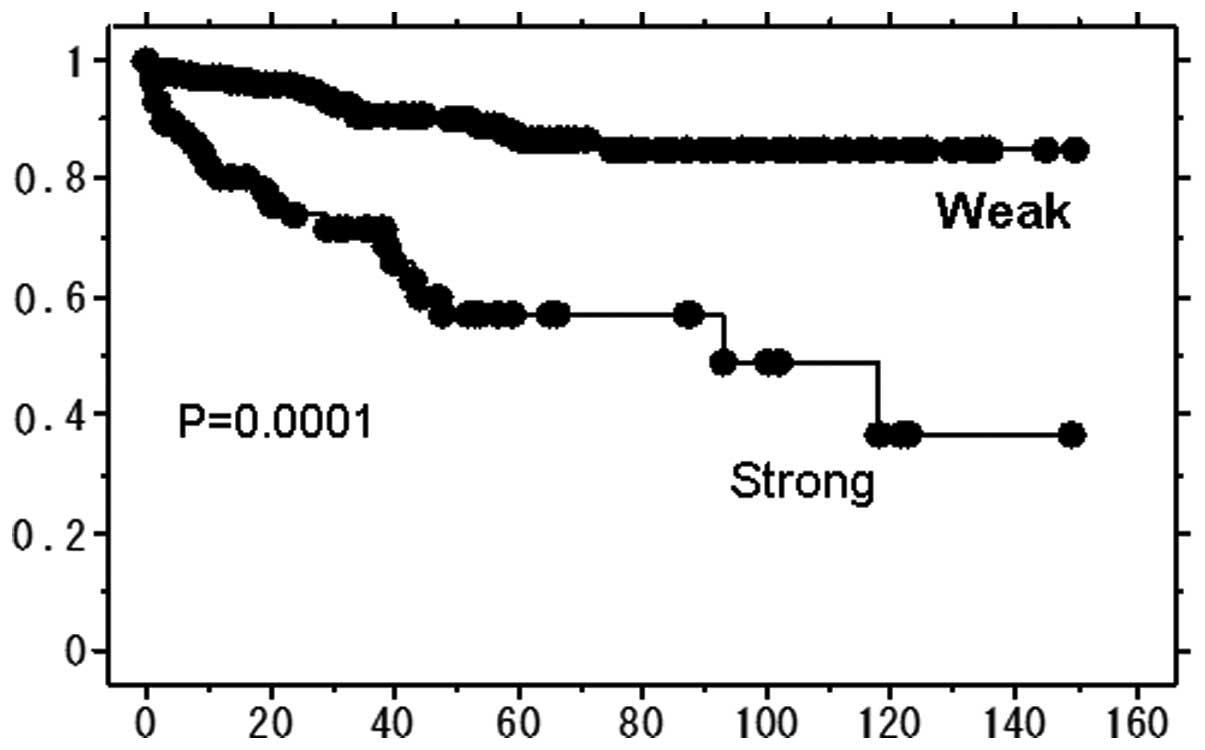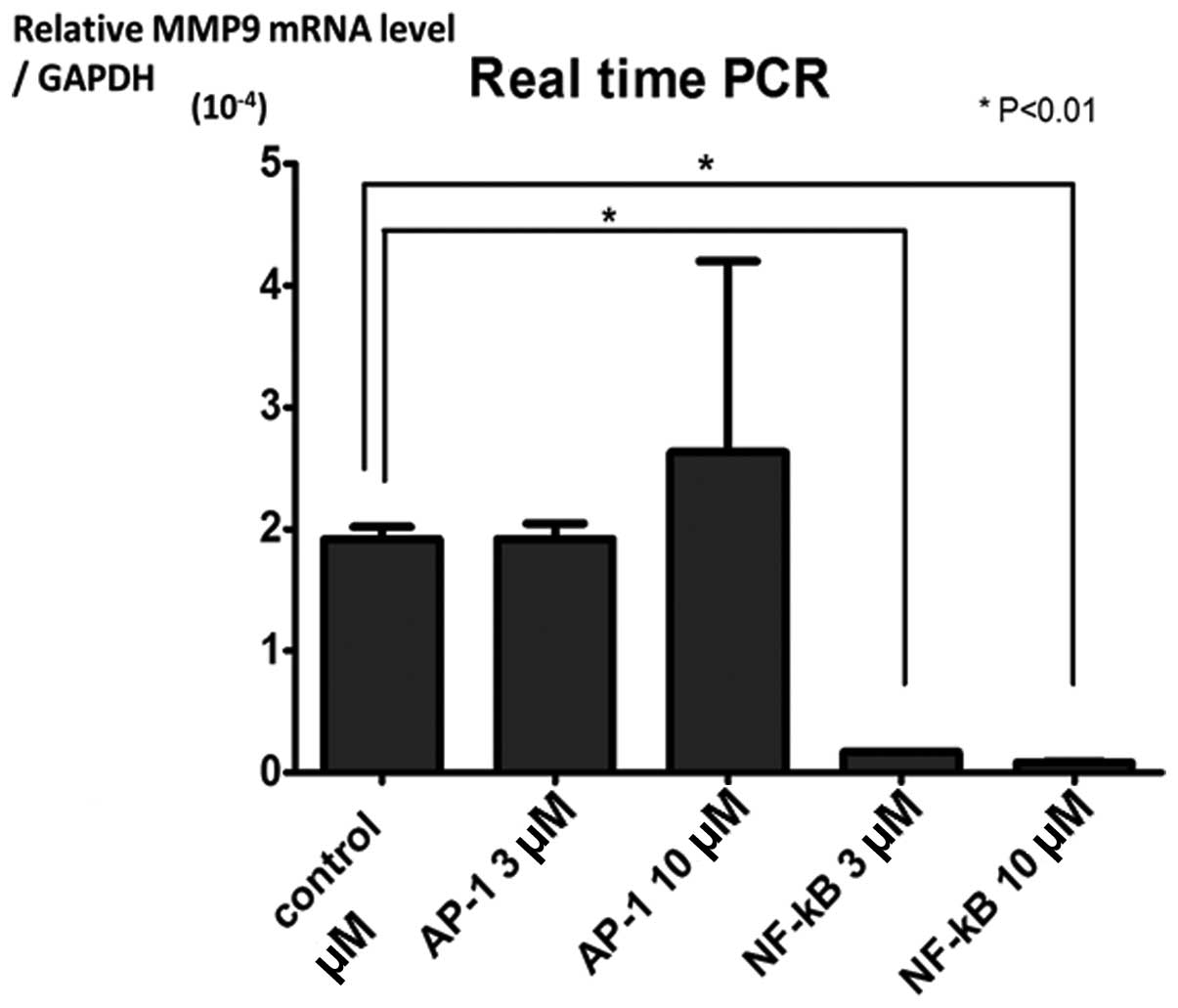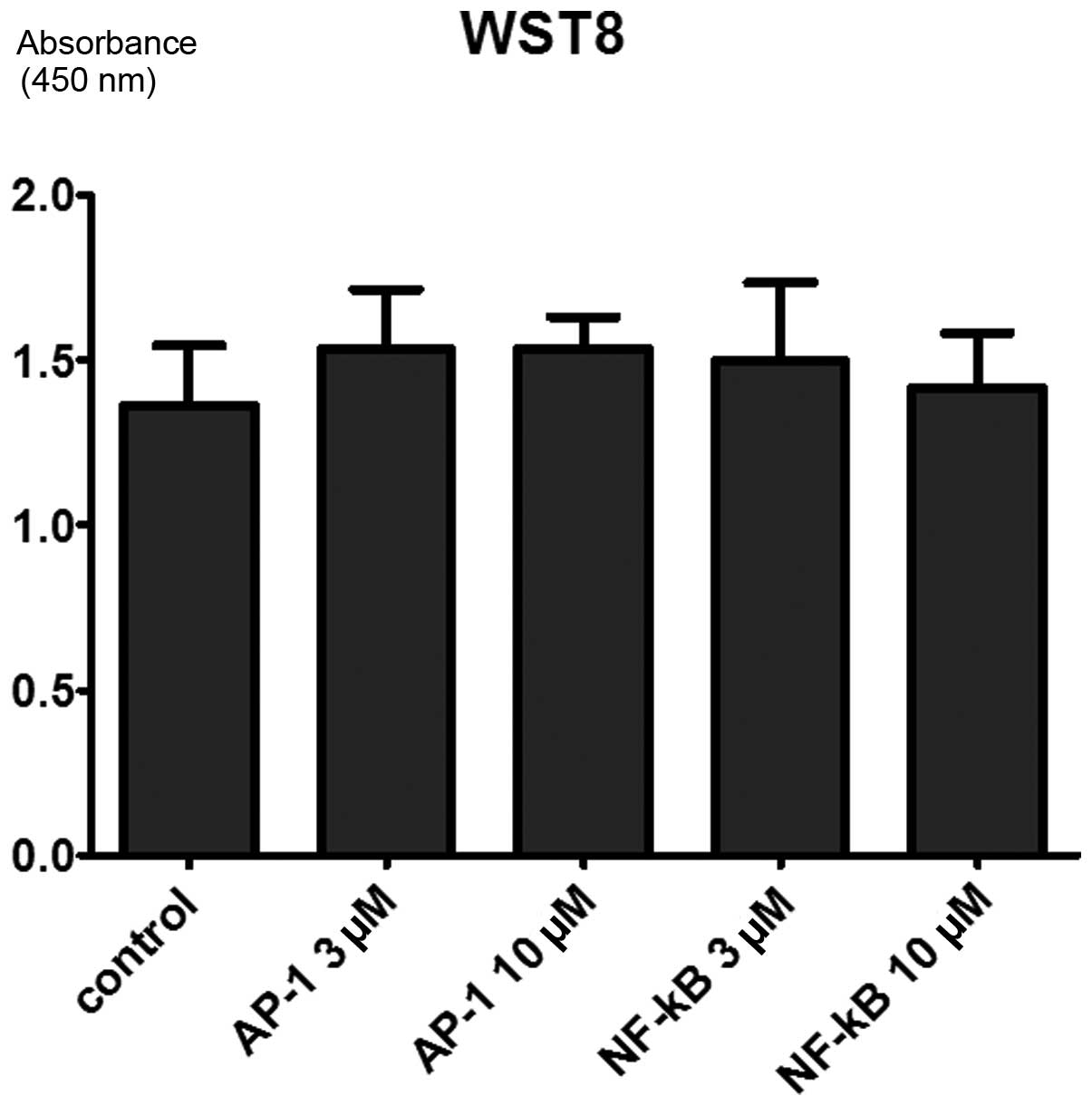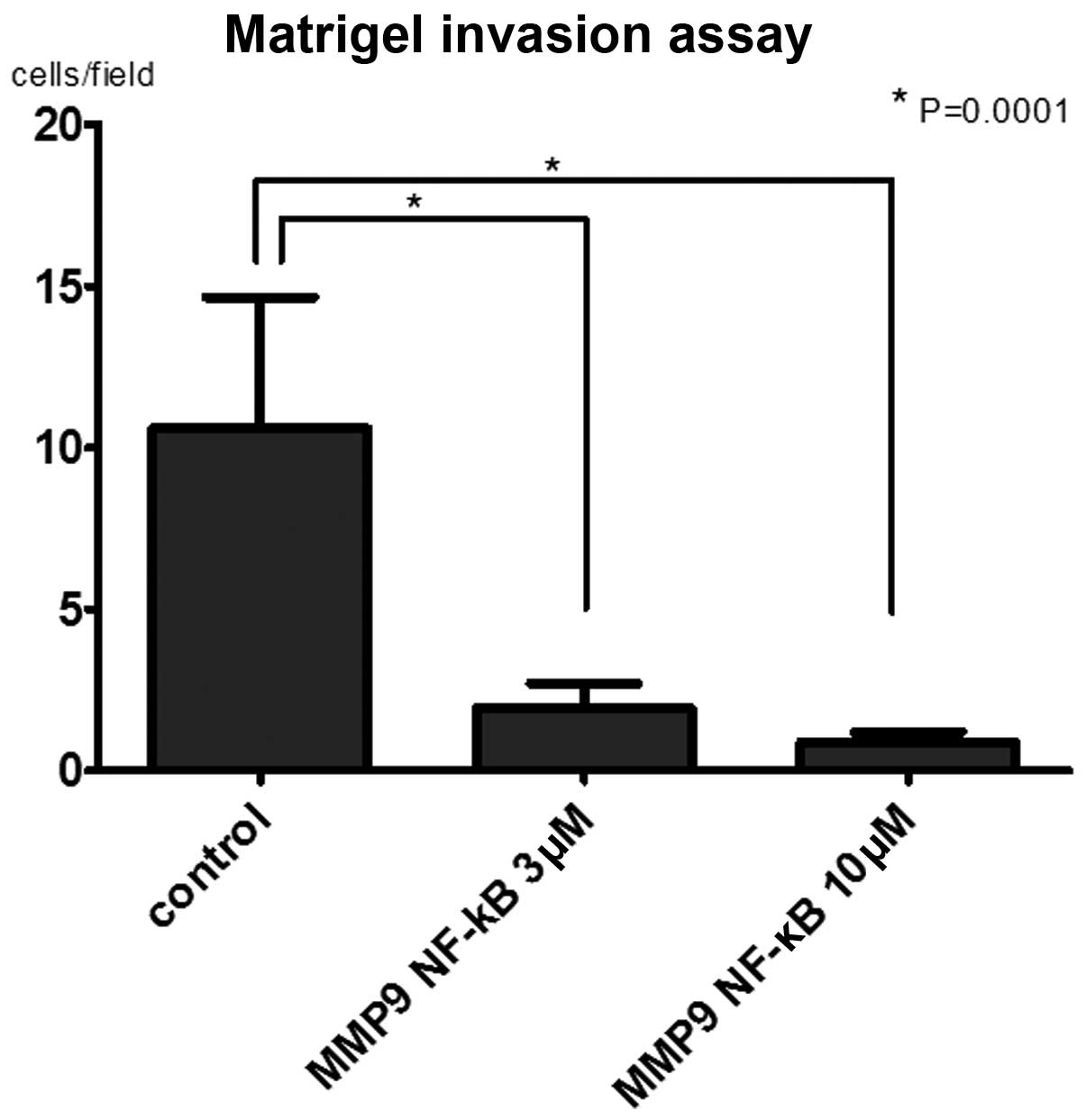|
1.
|
Srinivasan R, Armstrong AJ, Dahut W, et
al: Anti-angiogenic therapy in renal cell cancer. BJU Int.
99:1296–1300. 2007. View Article : Google Scholar : PubMed/NCBI
|
|
2.
|
Board RE, Thistlethwaite FC and Hawkins
RE: Anti-angiogenic therapy in the treatment of advanced renal cell
cancer. Cancer Treat Rev. 33:1–8. 2007. View Article : Google Scholar : PubMed/NCBI
|
|
3.
|
Figlin RA: Anti-angiogenic therapy in
renal cell carcinoma: alone, in combination, or sequentially. Clin
Adv Hematol Oncol. 7:662–665. 2009.PubMed/NCBI
|
|
4.
|
Kessenbrock K, Plaks V and Werb Z: Matrix
metalloproteinases: regulators of the tumor microenvironment. Cell.
141:52–67. 2010. View Article : Google Scholar : PubMed/NCBI
|
|
5.
|
Klein T and Bischoff R: Physiology and
pathophysiology of matrix metalloproteases. Amino Acids.
41:271–290. 2011. View Article : Google Scholar : PubMed/NCBI
|
|
6.
|
Bourboulia D and Stetler-Stevenson WG:
Matrix metalloproteinases (MMPs) and tissue inhibitors of
metalloproteinases (TIMPs): positive and negative regulators in
tumor cell adhesion. Semin Cancer Biol. 20:161–168. 2010.
View Article : Google Scholar : PubMed/NCBI
|
|
7.
|
Lukaszewicz-Zajac M, Mroczko B and
Szmitkowski M: Gastric cancer - the role of matrix
metalloproteinases in tumor progression. Clin Chim Acta.
412:1725–1730. 2011. View Article : Google Scholar : PubMed/NCBI
|
|
8.
|
Cho NH, Shim HS, Rha SY, et al: Increased
expression of matrix metalloproteinase 9 correlates with poor
prognostic variables in renal cell carcinoma. Eur Urol. 44:560–566.
2003. View Article : Google Scholar : PubMed/NCBI
|
|
9.
|
Awakura Y, Ito N, Nakamura E, et al:
Matrix metalloproteinase-9 polymorphisms and renal cell carcinoma
in a Japanese population. Cancer Lett. 241:59–63. 2006. View Article : Google Scholar : PubMed/NCBI
|
|
10.
|
Zhang X, Yamashita M, Uetsuki H, et al:
Angiogenesis in renal cell carcinoma: evaluation of microvessel
density, vascular endothelial growth factor and matrix
metalloproteinases. Int J Urol. 9:509–514. 2002. View Article : Google Scholar
|
|
11.
|
Sherief MH, Low SH, Miura M, et al: Matrix
metalloproteinase activity in urine of patients with renal cell
carcinoma leads to degradation of extracellular matrix proteins:
possible use as a screening assay. J Urol. 169:1530–1534. 2003.
View Article : Google Scholar
|
|
12.
|
Kallakury BV, Karikehalli S, Haholu A, et
al: Increased expression of matrix metalloproteinases 2 and 9 and
tissue inhibitors of metalloproteinases 1 and 2 correlate with poor
prognostic variables in renal cell carcinoma. Clin Cancer Res.
7:3113–3119. 2001.PubMed/NCBI
|
|
13.
|
Kawata N, Nagane Y, Hirakata H, et al:
Significant relationship of matrix metalloproteinase 9 with nuclear
grade and prognostic impact of tissue inhibitor of
metalloproteinase 2 for incidental clear cell renal cell carcinoma.
Urology. 69:1049–1053. 2007. View Article : Google Scholar
|
|
14.
|
Kawata N, Nagane Y, Igarashi T, et al:
Strong significant correlation between MMP-9 and systemic symptoms
in patients with localized renal cell carcinoma. Urology.
68:523–527. 2006. View Article : Google Scholar : PubMed/NCBI
|
|
15.
|
Lai YM, Fukuda N, Ueno T, et al: Synthetic
pyrrole-imidazole polyamide inhibits expression of the human
transforming growth factor-beta1 gene. J Pharmacol Exp Ther.
315:571–575. 2005. View Article : Google Scholar : PubMed/NCBI
|
|
16.
|
Kageyama Y, Sugiyama H, Ayame H, et al:
Suppression of VEGF transcription in renal cell carcinoma cells by
pyrrole-imidazole hairpin polyamides targeting the hypoxia
responsive element. Acta Oncol. 45:317–324. 2006. View Article : Google Scholar : PubMed/NCBI
|
|
17.
|
Matsuda H, Fukuda N, Ueno T, et al:
Development of gene silencing pyrrole-imidazole polyamide targeting
the TGF-beta1 promoter for treatment of progressive renal diseases.
J Am Soc Nephrol. 17:422–432. 2006. View Article : Google Scholar : PubMed/NCBI
|
|
18.
|
Minoshima M, Sasaki S, Fujimoto J, et al:
Synthesis and biological properties of pyrrole-imidazole polyamide
conjugates. In: Nucleic Acids Symp Ser (Oxf); pp. 35–36. 2007,
PubMed/NCBI
|
|
19.
|
Wang X, Nagase H, Watanabe T, et al:
Inhibition of MMP-9 transcription and suppression of tumor
metastasis by pyrroleimidazole polyamide. Cancer Sci. 101:758–766.
2010. View Article : Google Scholar : PubMed/NCBI
|
|
20.
|
Chakravarty D, Roy SS, Babu CR, et al:
Therapeutic targeting of PELP1 prevents ovarian cancer growth and
metastasis. Clin Cancer Res. 17:2250–2259. 2011. View Article : Google Scholar : PubMed/NCBI
|
|
21.
|
Stellas D, El Hamidieh A and Patsavoudi E:
Monoclonal antibody 4C5 prevents activation of MMP2 and MMP9 by
disrupting their interaction with extracellular HSP90 and inhibits
formation of metastatic breast cancer cell deposits. BMC Cell Biol.
11:512010. View Article : Google Scholar
|
|
22.
|
Yan L, Kumagai SG, McGuire MH, et al:
Protease activity and invasion of matrigel by the
osteosarcoma-derived OSPR cell line. Biochem Soc Trans.
22:S181994.PubMed/NCBI
|
|
23.
|
Hall DMS and Brooks SA: In vitro invasion
assay using matrigel(R). Methods Mol Med. 58:61–70. 2001.
|
|
24.
|
Deryugina EI, Luo GX, Reisfeld RA, et al:
Tumor cell invasion through matrigel is regulated by activated
matrix metalloproteinase-2. Anticancer Res. 17:3201–3210.
1997.PubMed/NCBI
|
|
25.
|
Bauvois B: New facets of matrix
metalloproteinases MMP-2 and MMP-9 as cell surface transducers:
Outside-in signaling and relationship to tumor progression. Biochim
Biophys Acta. 1825:29–36. 2011.
|















